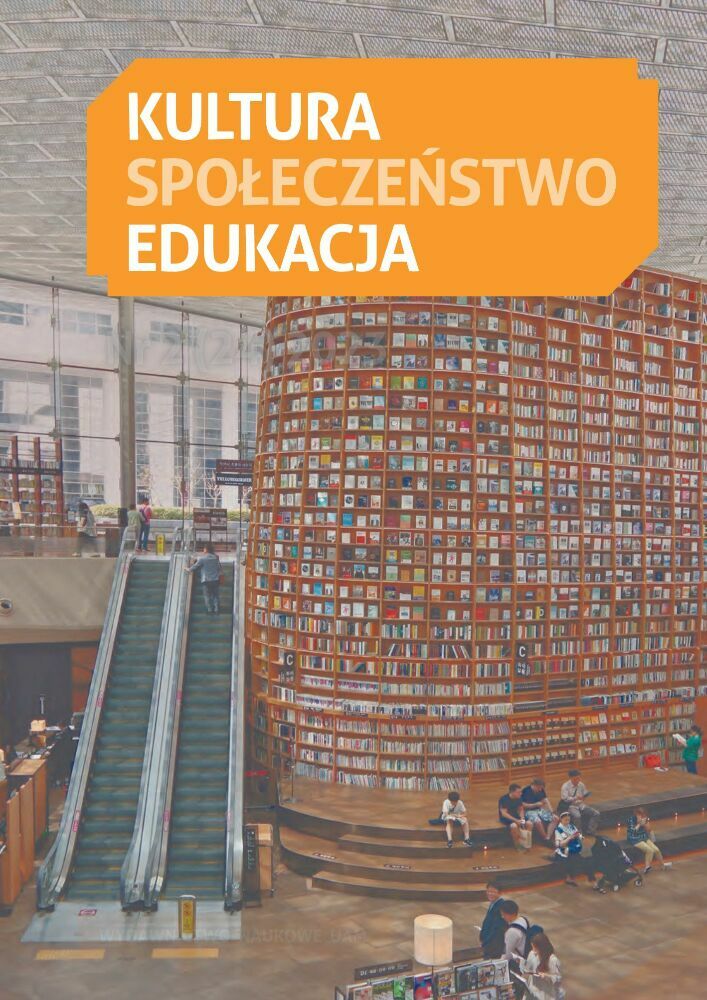Abstrakt
This article presents part of the research results conducted as part of the project “Comparative study on functions of international programmes in Poland” (NCN, Sonata Bis, no. 2020/38/E/HS6/00048). These results concern the learning of teachers implementing international education programs in Poland. It was found that the Polish teacher education system does not include preparation for work in international schools, which places these schools outside the Polish system of pedagogical support and supervision. Therefore, teachers start working in international schools with the conscious intention of learning this specific professional function, they experience rather favourable learning conditions there and try to make optimal use of these conditions. The analysis of teachers’ experiences allowed to identify and initially characterize three levels of organizing teachers’ learning: school, national and international.
Finansowanie
Artykuł ten powstał w ramach projektu naukowego „Badania porównawcze funkcji międzynarodowych programów kształcenia w Polsce” (NCN, Sonata Bis, nr 2020/38/E/HS6/00048).
Bibliografia
Conway, P.F., Murphy, R., Madalińska-Michalak, M. (2012). Integrated learning cultures and learning to teach: Norms, values and the next generation of teachers in two cultures. W: B. Boufoy-Bastick (red.), The international handbook of cultures of professional development for teachers.
Collaboration, reflection, management and policy (s. 235–264). Analytrics. https://analytrics.org/wp-content/uploads/2021/03/Cultures-of-Teacher-Development.pdf
Doherty, C., Shield, P. (2012). Teachers’ work in curricular markets: Conditions of design and relations between the International Baccalaureate Diploma and the local curriculum. Curriculum Inquiry, 42(3), 414–441. DOI: https://doi.org/10.1111/j.1467-873X.2012.00596.x
Edwards, D., Underwood, C. (2012). IB graduates in Australian universities: Entry and outcomes. A case study of two institutions. Australian Council for Educational Research.
Gołek, B. (2010). Poznawcze potrzeby nauczyciel. Wydawnictwo Uniwersytetu Jagiellońskiego.
Imants, J. (2012). Teachers’ workplace learning and educational leadership in schools. Studia Pedagogiczne, 55, 281–300.
Kwaśnica, R. (2007). Wprowadzenie do myślenia o nauczycielu. W: Z. Kwieciński, B. Śliwerski (red.), Pedagogika. Podręcznik akademicki (t. 2, s. 291–319), Wydawnictwo Naukowe PWN.
Kwiatkowska, H. (2008). Pedeutologia. Wydawnictwa Akademickie i Profesjonalne.
Leek, J. (2022). From educational experiment to an alternative to the national programme. International Baccalaureate Programmes in Poland – policy and practice perspectives. Compare: A Journal of Comparative and International Education, 52(3), 475-491. DOI: https://doi.org/10.1080/03057925.2020.1777842
Lewartowska-Zychowicz, M. (2009), Nauczyciel (wczesnej edukacji) w relacjach wolności i przymusu. W: D. Klus-Stańska, M Szczepska-Pustkowska (red.), Pedagogika wczesnoszkolna – dyskursy problemy, rozwiązania (s. 158–185). Wydawnictwa Akademickie i Profesjonalne.
Leżańska W. (2011). Rozwój zawodowy a poczucie podmiotowości nauczyciela wczesnej edukacji. W: J. Bonar, A Buła (red.), Poznać – Zrozumieć – Doświadczyć. Teoretyczne podstawy praktycznego kształcenia nauczycieli wczesnej edukacji (s. 39–52). Oficyna Wydawnicza „Impuls”.
Madalińska-Michalak, J. (2017). Przywództwo dyrektora szkoły a zmiana i uczenie się nauczycieli we wspólnotach praktyków. Rocznik Lubuski, 43(1), 217–229.
Maire, Q. (2021). Credential market: Mass schooling, academic power and the International Baccalaureate Diploma. Springer. DOI: https://doi.org/10.1007/978-3-030-80169-4
Michalak, J.M. (2007). Uwarunkowania sukcesów zawodowych nauczycieli. Studium przypadków. Wydawnictwo Uniwersytetu Łódzkiego.
Michalak, J.M. (2009). Przestrzenie uczenia się nauczycieli: uczenie się w środowisku szkoły. Edukacja. Studia. Badania. Rozwój, (4), 22–33.
Michalak, J.M. (2010). Przestrzeń uczenia się nauczycieli – idea społecznej teorii uczenia się we wspólnocie praktyków Etienne’a Wengera. W: J. Surzykiewicz, M. Kulesza (red.), Ciągłość i zmiana w edukacji szkolnej – społeczne i wychowawcze obszary napięć (s. 115–128). Wydawnictwo Uniwersytetu Łódzkiego.
Milles, M.B., Huberman, A.M. (2000). Analiza danych jakościowych (S. Zabielski, tłum.). Wydawnictwo Uniwersyteckie Trans Humana.
Nowak-Dziemianowicz, M. (2001). Oblicza nauczyciela. Oblicza szkoły. Wydawnictwo Adam Marszałek.
Outhwaite, D., Ferri, G. (2017). Critical reflections on modern elite formation and social differentiation in the International Baccalaureate Diploma Programme in England. Oxford Review of Education, 43(4), 402–416. DOI: https://doi.org/10.1080/03054985.2017.1329719
Palka, S. (2011). Rozpoznawanie, wyjaśnianie i rozumienie w pracy dydaktyczno-wychowawczej nauczycieli klas początkowych. W: J. Bonar, A Buła (red.), Poznać – Zrozumieć – Doświadczyć. Teoretyczne podstawy praktycznego kształcenia nauczycieli wczesnej edukacji (s. 31–38). Oficyna Wydawnicza „Impuls”.
Plewka, C. (2009). Uwarunkowania zawodowego rozwoju nauczycieli. Instytut Badań Edukacyjnych.
Prysak, D. (2022). Aktualna rzeczywistość nauczyciela wyzwaniem dla edukacji wysokiej jakości. Konteksty Pedagogiczne, 18(1), 21–35. https://kontekstypedagogiczne.pl/kp/article/view/345/263
Resnik, J. (2014). Who gets the best teachers? The incorporation of the IB programme into public high schools and its impact on the teacher labor market in Ecuador. W: R. Arber, J. Blackmore, A. Vongalis-Macrow (red.), Mobile teachers, teacher identity and international schooling (s. 95– 119). Sense Publishers.
Rojek, M. (2018). Międzypokoleniowe uczenie się nauczycieli. Studium przypadków. Wydawnictwo Uniwersytetu Łódzkiego.
Rojek, M., Leek, J., Kosiorek, M., Dobińska, G. (2023). Mutual learning community: Teachers’ opinions about their learning possibilities in schools implementing international programmes. Annales. Universitatis Mariae Curie-Skłodowska. Sectio J – Paedagogia-Psychologia, 36(1), 27–43. DOI: https://doi.org/10.17951/j.2023.36.1.27-43
Rutkowiak, J. (1981). Rozwój zawodowy nauczyciela a szkoła. WSiP.
Szempruch, J. (2000). Pedagogiczne kształcenie nauczycieli wobec reformy edukacji w Polsce. Wyższa Szkoła Pedagogiczna w Rzeszowie.
Szempruch, J. (2013). Pedeutologia. Studium teoretyczno-pragmatyczne. Oficyna Wydawnicza „Impuls”.
Tarc, P. (2009). Global dreams, enduring tensions: International Baccalaureate in a changing world. Peter Lang.
Theokas, C. (2013). Finding America’s missing AP and IB students. The Education Trust. https://edtrust.org/resource/finding-americas-missing-ap-and-ib-students/
Ustawa z dnia 14 grudnia 2016 r. – Prawo oświatowe Dz.U. 2023 poz. 900 z późn. zm. (2023) (Polska).
Wright, E., Lee, M. (2020). Does the international Baccalaureate ‘work’ as an alternative to mainstream schooling? Perceptions of university students in Hong Kong. Studies in Higher Education. Advance online publication. DOI: https://doi.org/10.1080/03075079.2020.1793929
Licencja
Prawa autorskie (c) 2023 Marcin Rojek

Utwór dostępny jest na licencji Creative Commons Uznanie autorstwa – Bez utworów zależnych 4.0 Międzynarodowe.

